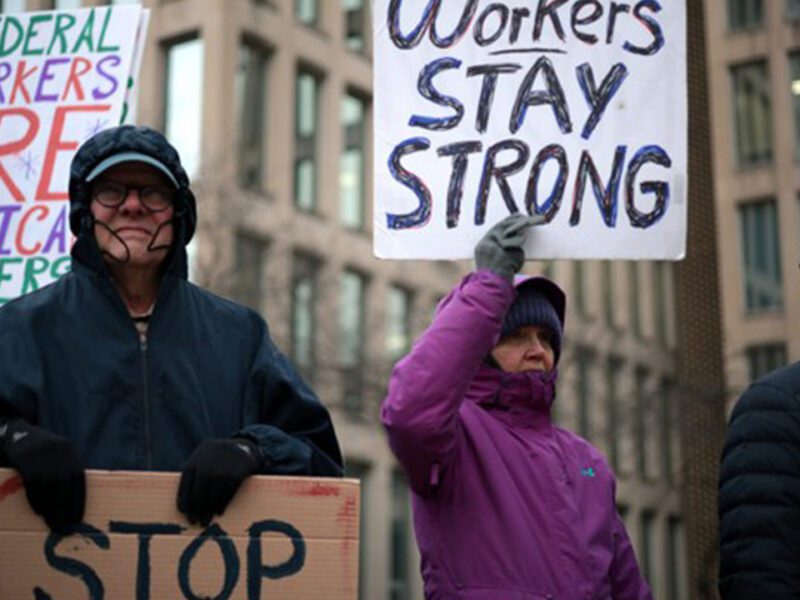
School voucher money is rolling in, but private schools, families are still concerned
WUSF npr | By Nancy Guan | October 5, 2023
Since a major expansion of the program, Florida’s private school voucher system has experienced delays in getting money to families and schools.
As private school voucher money rolls in, some Florida families and their schools are still waiting for the funds that pay for tuition and other crucial services.
Earlier this year, a major expansion of the voucher program made nearly all Florida students eligible for vouchers, leading to a surge in applicants.
According to an email statement from the Florida Department of Education (FLDOE), more than 345,000 scholarships have been funded so far this school year, compared to a total of 262,000 last year.
For weeks at the beginning of the school year, the state and main voucher distributor Step Up For Students experienced delays in disbursing the public funds, causing major disruptions for some private schools.
Private school operators pointed to issues with a new software system, EMA, used to invoice and disburse payments. Voucher money is deposited into a student’s Education Savings Account (ESA) and payments are invoiced by schools.
Step Up For Students then disburses funding provided by the FLDOE and the Federal Tax Credit program, which operates outside of state funding, to schools.
As of Tuesday afternoon, the organization said they’re expecting to complete at least 94% of the payments for accounts that have been properly invoiced by the end of this week.
The remaining student accounts have “issues such as improper banking information, missing tax forms, students on more than one program or on VPK (voluntary prekindergarten), and other issues,” that they are working to fix, according to Scott Kent, spokesperson for Step Up for Students.
While that money is starting to trickle in, some school operators said they’re frustrated by the lack of communication from the state and funding organization and are worried about next quarter’s payments.
“If they still are working out September, how in the world are we going to get November? That’s what we’re all very concerned with,” said Maria Preston, who runs the Diverse Abilities Center for Learning and Therapy in Ft. Lauderdale.
For recipients of the Family Empowerment Scholarship Unique Abilities, which serves students with special needs, payments are disbursed quarterly on the first of September, November, February and April.
According to Step Up’s handbook, funds are supposed to be deposited into student accounts within two weeks of receiving funds from the state. But disruptions to that process — attributed to a record number of applicants and new voucher system — meant some families did not receive that tuition money in time for school.
Nichole Folks is a parent of an autistic child in Duval County. Folks said her son was attending a virtual program since the COVID-19 pandemic began, and was excited to finally return to in-person learning. But she said she didn’t receive the scholarship money until this week.
“My son was so disappointed, he was so excited to go back,” said Folks, “How do you tell a child that we’re just stuck here waiting for that resource to come in?”
Folks said that prior to switching to a virtual school, her son was part of the McKay Scholarship Program and had no trouble receiving the funds before the start of the school year. This year, as part of the school voucher program expansion, the McKay Scholarship was consolidated with the Family Empowerment Scholarship Program.
Some Tampa Bay area private schools breathe sigh of relief
After weeks of not receiving state funds, the Morning Star Catholic School in North Tampa began to see the voucher money roll in. They received a disbursement just in time for payroll, said Lauren Smutko, assistant to the principal.
“We were down to like the last week. We were looking at making payroll or not making payroll and we weren’t going to make payroll and then it came in, so it was a huge relief,” said Smutko.
In the meantime, she said, the Catholic Diocese was able to step in and keep services running for the 74 students, most of whom rely on disability scholarships to attend.
At Hope Ranch Learning Academy in Pasco County, the private school tapped into their reserves. CEO Jose Suarez said they anticipated delays when the state announced the voucher program expansion earlier this year, and increased their fundraising efforts while holding off on major improvement projects.
“The legislation just got approved and implemented July 1, there’s no way a government can move that quick,” said Suarez. “Any time you tweak with a government system, things go bump in the night.”
The preparations paid off and the school, which serves about 300 students, was able to keep their families from feeling the strain.
“The reserves are not in good shape, but we’re beginning to see some income come in from the scholarship organization,” said Suarez, who noted that the last round of payments schools received before this fall was in April. “So it makes a big, big difference.”
Other schools in the area also reported weeks-long delays and having to dip into reserves or personal funds to get by. Some schools declined to go on record for fear of retaliation.
One Tampa-area private school that serves predominantly low-income immigrant communities mentioned one parent who has not been able to send her student to school because she still has not received the voucher payment.
Suarez added that even though his school had prepared for the worst, the situation was still “worrisome” as they watched the reserves shrink. As of Tuesday, the school has received about 15% of the billings for voucher payments, he said.
“The beginning of every school year has a lot of extra work,” said Suarez, “And I think that’s what we’re all hoping is that once we get past this bump, it’s just a matter of repeating the same thing over and over again.”





